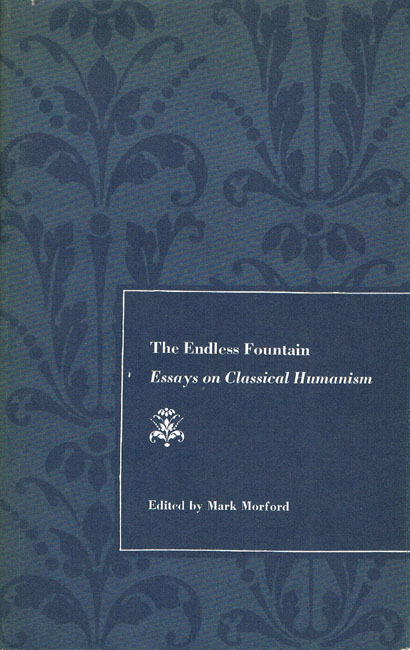The Endless FountainEssays on Classical HumanismEdited by Mark Morford |
 1972 Literary Criticism/Ancient & Classical 180 pp. 6x9  $32.95 paper 978-0-8142-5341-0 Add paper to shopping cart Shopping Cart Instructions Review/Change Shopping Cart & Check-out |
|||
|
The “endless fountain of immortal drink” that in John Keats’s Endymion is the metaphor for the inexhaustible flow of inspiration provided Western culture by the learning and art of classical antiquity, has supplied the title for this impressive collection of original essays, which set out to explore the vicissitudes that have marked the troubled history of the classical humanities during the nearly two thousand years in which they have alternately languished in torpid decline or enjoyed a spirited renaissance. The approach of the five distinguished contributors to the volume has inevitably been to some extent eclectic in that it concentrates on but three periods in a long history—namely, the fourth, eighteenth, and twentieth centuries—which represent major episodes and critical stages in the transmission of the classical tradition. In each has been discovered the pertinence of the classics to the peculiarities of circumstance that have shaped the singular events and novel developments that have characterized each age, as well as to the dilemmas that these in turn have posed. Each essayist argues convincingly for the place occupied by the classics as an essential component of humanistic studies, and each demonstrates, in the affirmations that underlie his work, those continuities that are the substance of a tradition that is once again threatened. That the classics in Greek and Latin have survived disasters in the past is the conclusive proof of their durability, not as ossified relics of a vanished vitality, but as enduring works in which modern man, like his predecessors, can encounter himself anew and confront the fundamental truths of his situation. The authors and their topics are: “The Classics and the New Humanism,” by Charles L. Babcock; “Classicism, Christianity, and Humanism,” by William F. McDonald; “Christian Humanism in the Fourth Century: Saint Jerome,” by David F. Heimann; “Goethe’s Iphigenia in Tauris: A Modern Use of a Greek Dramatic Theme,” by Oskar Seidlin; and “Classical Latin Poetry: An Art for Our Time,” by Harry C. Rutledge. The Epilogue is by Kenneth M. Abbott. Mark Morford is professor of classics and chairman of the Department of Classics at the Ohio State University. | ||||

